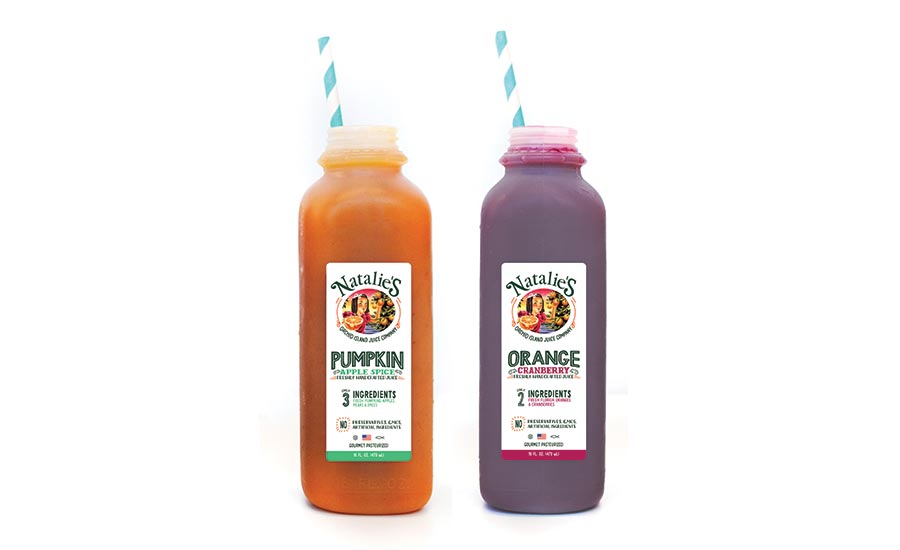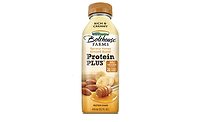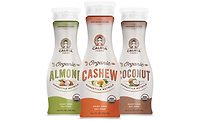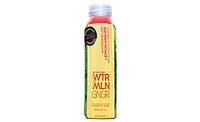With consumers increasing their scrutiny of what’s in the consumer packaged goods (CPGs) that they consume, beverage-makers are responding by providing more products made with recognizable ingredients, like domestic fruits. As more consumers look for simplicity and transparency, these ingredients have garnered more attention.
“Beverages are getting a lot of label scrutiny — much like all the rest of the food industry,” says Jeannie Swedberg, director of business development at Selah, Wash.-based Tree Top Inc. “In the beverage segment, we’re seeing that manifested with a raft of free-from claims — gluten free, soy free, GMO free, etc. — and other similar claims, such as no sugar added, organic, minimally processed [and] cold-pressed, [and] many of these label callouts tie back to the larger clean-label trend and the desire for transparency in labeling. People want to know what’s in their beverage, how it was made and even how it got to them. So it’s not uncommon to see ‘local’ or ‘made from Northwest Washington apples.’ Varietal callouts are also increasing — so it’s not just 100 percent apple juice — it’s 100 percent Honey Crisp Apple Juice.”
Adam Cooper, vice president of marketing for Los Angeles-based The Wonderful Co. LLC, also emphasizes the importance of a product’s origin to consumers. “Consumers like to know where their food comes from, and POM guarantees that our pure pomegranate juice comes from Wonderful-variety pomegranates from our very own orchards in California’s Central Valley.”
He also notes that domestic fruits cater to clean-label trends. “As brands are releasing an increasing number of flavors and options, people are looking to experiment and try new things, [but] consumers are still looking for simplicity, clean labels and great taste,” Cooper says.
As transparency and simplicity gain in the beverage market, products like The Wonderful Co.’s POM Wonderful have benefited, Cooper notes. “We believe strongly in the benefits of our POM Wonderful products, which is why we include the juice from two whole POM Wonderful pomegranates in every 8-ounce bottle and nothing else,” he says.
The functional attributes of some domestic fruits are sought after by many consumers as well, Cooper adds, highlighting the popularity of antioxidants in CPGs. “We have found that antioxidants drive purchase behavior in the super-premium juice category,” he explains. “For example, 55 percent of juice buyers intend to buy POM because it contains antioxidants.
“… Known for their delicious, sweet taste and plentiful juice, Wonderful-variety pomegranates deliver free-radical fighting antioxidants like ellagatanins, anthocyanins and flavonoids, which can be found throughout the pomegranate in the arils, pith and the rind,” he continues.
Tree Top’s Swedberg also notes the growth of functionality/fortification combined with domestic fruit flavors. “Apple cider vinegar beverages are meant to have health benefits, and so are those we see fortified with antioxidants, vitamins, probiotics, fiber, etc.,” she says.
However, blends that utilize domestic fruits also are gaining a following, she says. “Domestic fruit and veggie combinations are gaining in popularity — apples and greens, pears, grapes and other cucumbers, beets, carrots and more,” Swedberg explains.
“We’re also seeing a lot of spices and herbs added to beverages — and not only in smoothies,” she continues. “For instance, ginger may add a little heat to the sweetness of fruit. Cinnamon and apple is fairly common, but turmeric, parsley and curry are more on the fringe, bringing a hint of exotic to the familiar.”
For example, POM Wonderful offers blends of its domestic pomegranates with other domestic fruits, like blueberries and cherries, as well as blends with iced teas, Cooper says.
Swedberg notes that Tree Top offers several domestic juice concentrates for beverage formulations, including apple, blackberry, blueberry, Concord grape, peach and strawberry, among others.
Although consumers appreciate the familiarity of products that utilize domestic fruits, like apples, pears and grapes, in their formulations, they still are looking for something new or exotic alongside the familiar, she adds.
“[Domestic fruits] are being used for two reasons — cost and familiarity,” she explains. “People like to have a juice flavor/beverage with which they’re familiar. That makes a new beverage more approachable — yet, at the same time, they like to try new flavors. When you combine an exotic fruit with a domestic one that is more familiar, this gives both — something new and something familiar. It’s less of a risk [for the consumer] to try something new when it’s linked to a recognized, well-liked flavor, such as apple or strawberry.”
Moving forward, domestic fruits are expected to continue to fare well in the beverage market, POM Wonderful’s Cooper says. “We believe that consumers will continue to choose beverages where they don’t have to sacrifice flavor for health,” he says. “Consumers are attracted to POM Wonderful because we offer the health and antioxidant benefits of pomegranates, on-the-go and year-round.”




